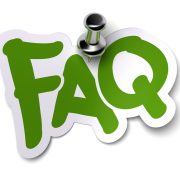Avoiding Real Estate IRA Tax Traps
 Real estate provides a unique combination of investment qualities:
Real estate provides a unique combination of investment qualities:
- Tangibility – Unlike securities, value almost never drops to zero.
- Current income – From rent, mineral rights, logging or farming
- Potential for capital appreciation
- Tax advantages
Yes, rental income is taxable as ordinary income. But for those who use Self-Directed IRAs, holding real estate within an IRA allows you to defer those taxes until they take distributions. If it’s a qualified Roth account, distributions are tax-free!
The combination of real estate with the tax advantages of retirement accounts such as Self-Directed IRAs is a potentially powerful investment engine. But if you want the tax advantages to stick, you have to follow a few basic rules to avoid IRS penalties. Running afoul of them even once could cause the IRS to revoke the IRA status, resulting in big tax penalties.
Self-Dealing Rules
The first thing to understand is the prohibition against self-dealing. That is, using your IRA property for your own personal benefit, or the benefit of your own family.
Under the law, your IRA is holding your property in trust for you for the purpose of contributing to your retirement income security. If you begin appropriating the property for your own immediate short-term use, that creates a conflict of interest for your IRA. It also short-circuits the original purpose of the IRA itself: Congress grants tax advantages to IRA accounts because taxpayers have to give up current consumption to contribute to IRAs.
For this reason, if you own real estate within an IRA or other self-directed retirement account, you cannot stay in the property yourself, personally. Additionally, you may not provide services to the property such as maintenance.
You also cannot make the property available to your spouse, parents, grandparents, children or grandchildren. You can’t even make your property available to any advisor who provides you advice on your IRA, because of the potential for conflict of interest.
Taking the rules a step further, your IRA cannot take a loan from you, and cannot lend money to you or any of the people described above. You cannot pledge assets in your IRA as a collateral for a personal loan (though your Self-Directed IRA can borrow money on a non-recourse basis – as long as the proceeds remain within the IRA).
Furthermore, you cannot mask yourself behind an entity you control. For example, you cannot hold a property in a Self-Directed IRA and have the property hire your corporation to do remodeling, landscaping, lawn maintenance, or anything else. The same goes for any corporations controlled by your spouse, parents, or children or your spouse’s parents or children. For more information, see IRS Publication 590, or click here.
FAQs
Can my Self-Directed IRA buy or sell property from or to myself or my family members?
No. Your IRA cannot conduct transactions directly with you, your spouse, decedents or antecedents, outside of contributions and distributions.
Do nieces and nephews count as family members?
No. Curiously enough, there’s no rule against renting the property or granting use of the property to brothers and sisters and their descendants. The law only prohibits your IRA from doing business with or benefiting your spouse, decedents and antecedents, your advisors and their spouses.
Can my brother and I both own vacation rentals within Self-Directed IRAs and allow each other’s family to stay in the house?
Technically, yes. But we wouldn’t recommend it. The IRS could possibly challenge it, and courts have generally taken a dim view of attempts to circumvent the spirit of the law.
Can I take a salary for managing my property within a Self-Directed IRA?
No. The same goes for your parents, spouse and children. This would violate self-dealing rules. Utilizing a property manager is the safest method for managing your IRA owned real estate. They can take care of evictions, collections, and send the profits to your IRA. This keeps everything at arms length for you.
Can I take money out when I sell the property within a Self-Directed IRA?
Sure. But it would be counted as a distribution, and taxes and penalties would apply, just as it would for any non-Self-Directed IRA.
Do I pay capital gains tax on property held within a Self-Directed IRA?
No. Capital gains tax does not apply to property held within IRAs. The cash proceeds just remain within the IRA. When you distribute the proceeds, it is generally taxed as income (minus an allowance for any basis you may have accrued as a result of non-taxable contributions). Of course, if you funded a Self-Directed Roth IRA with after-tax contributions, and the money’s been in your Roth IRA for five years or longer and you have reached 59 ½ , then the proceeds are tax-free!
Are there other taxes I should be aware of?
Yes. Your profits won’t be subject to ordinary income tax or capital gains tax as long as the assets remain within the Self-Directed IRA. But if you used debt to finance your purchase, you could be liable for something called unrelated debt-financed income tax. In a nutshell, the portion of your profits that can be attributed to leverage is subject to this tax. For more information on unrelated debt-financed income tax, see 26 U.S. Code Section 514.
Image by: presentermedia.com




